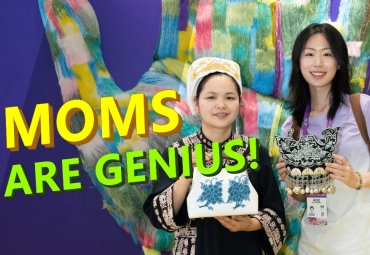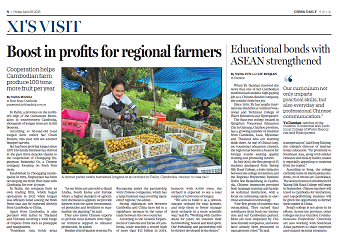Guizhou leads China's tea industry

Guizhou strives to develop a green and efficient tea industry. [Photo/ddcpc website]
In recent years, Southwest China's Guizhou province has been strengthening its tea culture, tea industry, and tea technology to accelerate brand cultivation, market expansion, and processing upgrades.
Guizhou also promoted eco-friendliness among its tea industrial bases, standardization of tea processing, development of enterprise clusters, and branding. The focus has shifted from increasing quantity to improving quality and guiding tea gardens to become environmentally-friendly and efficient.
In 2023, Guizhou's tea plantation area stabilized at 7 million mu (466,666.7 hectares), with tea production reaching 469,000 metric tons and a total output value of 64.38 billion yuan ($9 billion), representing year-on-year growth of 3.3 present and 6.1 present, respectively.
In the first 11 months of 2023, Guizhou's tea exports reached 5,500 tons, worth $91 million, and were exported to the United States, Europe, Africa, and Southeast Asia.
Guizhou was the first in the nation to ban water-soluble pesticides and increase restrictions on pesticide varieties. Efforts have been made to promote the development of tea varieties unique to Guizhou, green and comprehensive pest control measures, and the use of specialized fertilizers for tea cultivation.
By the end of 2025, the total tea production in the province is expected to reach 500,000 tons, with a tea output value surpassing 80 billion yuan.
All rights Reserved. 京ICP备13028878号-8







 Overview
Overview Guiyang
Guiyang Guian New Area
Guian New Area Liupanshui
Liupanshui Anshun
Anshun Qianxinan
Qianxinan Qiandongnan
Qiandongnan Qiannan
Qiannan Zunyi
Zunyi Tongren
Tongren Bijie
Bijie Guizhou commits to culture preservation and rural vitalization
Guizhou commits to culture preservation and rural vitalization Guizhou voice at 2025 national two sessions
Guizhou voice at 2025 national two sessions Meet the 'genius moms' at Shenzhen cultural fair
Meet the 'genius moms' at Shenzhen cultural fair 

